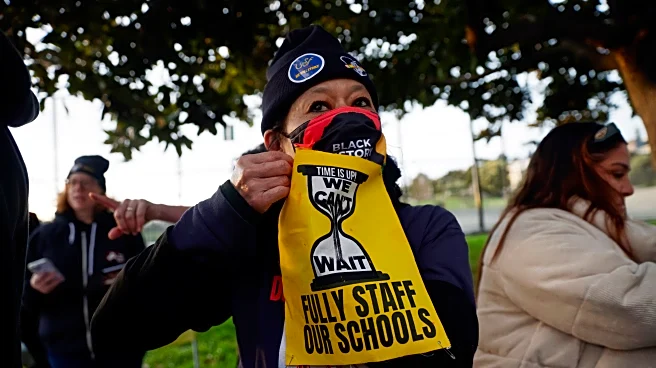Rapid Read • 9 min read
The National Retail Federation (NRF) and Hackett Associates have released a new Global Port Tracker report highlighting a significant decline in U.S.-bound imports due to the implementation of reciprocal tariffs by the White House. The report covers major ports including Los Angeles/Long Beach, New York/New Jersey, and others, projecting a 5.6% annual decrease in import cargo volume for 2025. This decline is attributed to the tariffs affecting dozens of U.S. trading partners, which are expected to drive up consumer prices and reduce the availability of goods on store shelves. The report notes that while cargo import numbers do not directly correlate with retail sales, they serve as an indicator of retailers' expectations. The tariffs are seen as a tax on U.S. importers, potentially leading to higher consumer prices, reduced hiring, and lower business investment.
AD
The decline in U.S.-bound imports due to reciprocal tariffs has significant implications for the U.S. economy and supply chain. As tariffs increase costs for importers, consumers may face higher prices, and businesses could see reduced investment and hiring. Small businesses, in particular, may struggle to remain competitive. The tariffs also create uncertainty in global trade, affecting both importers and exporters. With fewer imports, there could be a shortage of goods, impacting retailers and consumers alike. The situation underscores the need for stable trade agreements that lower tariffs and open markets, rather than imposing additional costs on businesses and consumers.
As the tariffs continue to impact trade, stakeholders including businesses, policymakers, and consumers will need to navigate the resulting economic challenges. The report suggests that the pulling forward of cargo in anticipation of tariffs may lead to a downturn in trade volumes by late September, as inventories for the holiday season will already be stocked. This could further strain the supply chain and affect economic growth. Businesses may need to adjust their strategies to mitigate the impact of tariffs, while policymakers might consider negotiating trade agreements to alleviate the economic burden.
The imposition of tariffs without a clear trade or economic strategy raises ethical and strategic questions about U.S. trade policy. The tariffs appear to be aimed at generating revenue for the U.S. Treasury, but they also disrupt trade flows and create uncertainty for businesses and consumers. This approach may strain relationships with trading partners and allies, as they are also affected by the tariffs. The long-term impact on global trade dynamics and the U.S.'s role in the international market remains to be seen.
AD
More Stories You Might Enjoy












